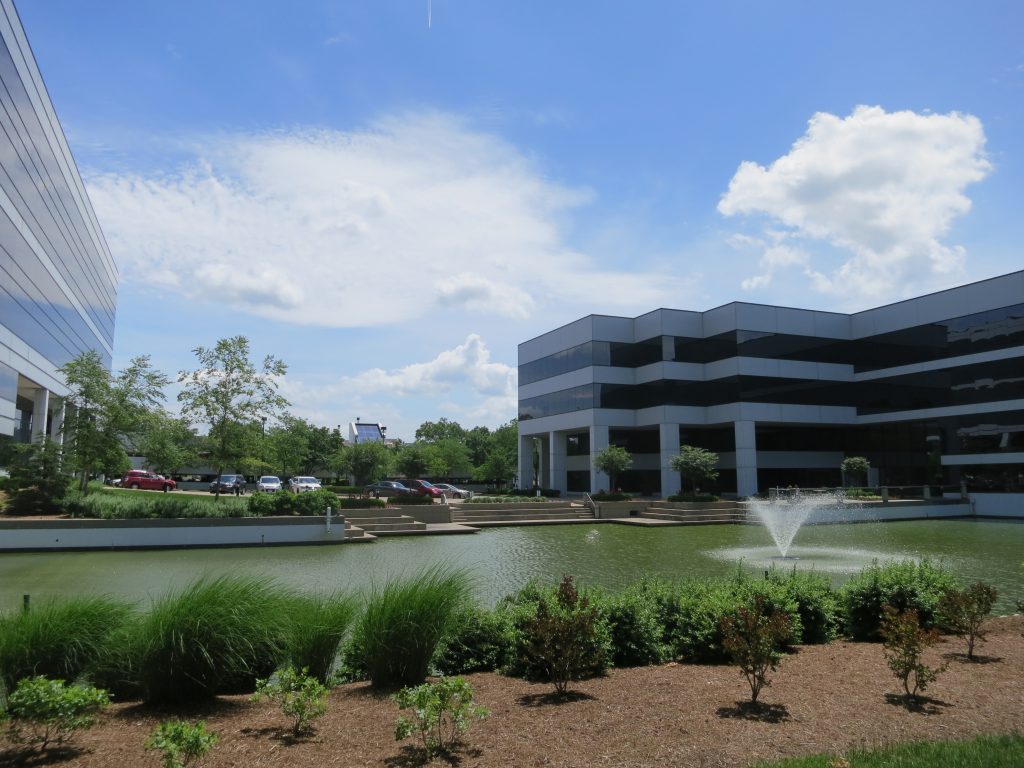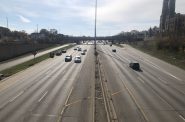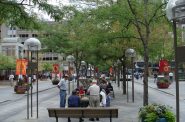Why Aren’t People Going Back to the Office?
All the city news you can use.

Office Park. Photo by Paul Sableman. (CC BY 2.0)
Every day at The Overhead Wire we sort through over 1,500 news items about cities and share the best ones with our email list. At the end of the week, we take some of the most popular stories and share them with Urban Milwaukee readers. They are national (or international) links, sometimes entertaining and sometimes absurd, but hopefully useful.
What’s keeping people from returning to the office: Fewer people are going to the office every day than before the pandemic and despite the tempting lures of free breakfast and other perks the main thing keeping people away seems to be the arduous daily commute. This is especially true for transit riders who live in suburbs with poor service and long commutes. In another piece in Slate, when asked what would get people back into the office, the two main requests were child care provision and getting rid of open offices. For many white collar workers, work may have changed forever. (Sarah Green Carmichael | Bloomberg/WaPo)
Audio: America’s future climate havens: Throughout this century more Americans are going to be impacted by climate related events including sea level rise and climate induced extreme weather. People are typically connected to the places they live, but eventually as many as 13 million will need to move, creating a situation where cities that are seen as climate havens will need to be more prepared for an influx of residents. (Stefano Kotsonis and Kimberly Atkins Stohr | WBUR)
Looking at Los Angeles through the eyes of artificial intelligence: Artificial intelligence renderers have taken off and produced many pieces of art and design by combing through existing works and generating composite new works. But if you put a city like Los Angeles into the system and only use the images, you’d come up with a cliche of beaches and palm trees. But if you put in literature or poetry about the city, the output changes quite dramatically. (Carolina A. Miranda et al | Los Angeles Times)
Are economies less dynamic as they age?: Yale University Press is re-releasing a 1982 book by Mancur Olsen entitled The Rise and Decline of Nations which discusses how when economies get older, they get less dynamic and more bogged down by process and the accumulation of interest groups. While initially the thesis didn’t make sense, scholars like Ed Glaeser see now how it applies to cities that impact the economy of the US by refusing to build housing and entrench the power of existing interest groups. (Walter Frick | Harvard Business Review)
Quote of the Week
I know they have design changes downtown … where they’re going to make it more bicycle-friendly and pedestrian-friendly. And I’m like: ‘Cool, great. Do the same thing for Fond du Lac. Do the same thing for Capitol, where it’s actually needed.’
–Tristain Thomas in Wisconsin Public Radio discussing the need for Wisconsin DOT to design safer roads but coming up against bureaucracy.
This week on the podcast, Billie Giles-Corti, director of the Healthy Livable Cities Lab at RMIT, Melanie Lowe of the University of Melbourne, and Geoff Boeing of USC, talk about their papers in The Lancet Global Health series on Urban Design, Transport and Health.
Urban Reads
-
How Traffic Noise Impacts Children’s Brains
 Jul 1st, 2024 by Jeff Wood
Jul 1st, 2024 by Jeff Wood
-
Number of Super Commuters is Rising
 Jun 22nd, 2024 by Jeff Wood
Jun 22nd, 2024 by Jeff Wood
-
Why Has the Walkable City Been Villainized?
 Jun 9th, 2024 by Jeff Wood
Jun 9th, 2024 by Jeff Wood




















